
Some people reveal their wealth the moment they walk into a restaurant, and oftentimes, they don’t even know it. Everything from tone to timing to body language can hint at your financial comfort.
This isn’t about status symbols; it’s about subtle behavior. Now, let’s take a look at nine restaurant behaviors that instantly give away your net worth.
Catching The Waiter’s Eye

It’s not the luxury handbag or diamond watch catching the waiter’s eye. True wealth communicates itself quietly, through decisions that you can’t really fake.
The way you order, respond to unexpected delays, or engage with the staff reveals a lot about you. Once you notice them, you’ll never look at dining etiquette or people the same way again.
1. “What’s Good?”
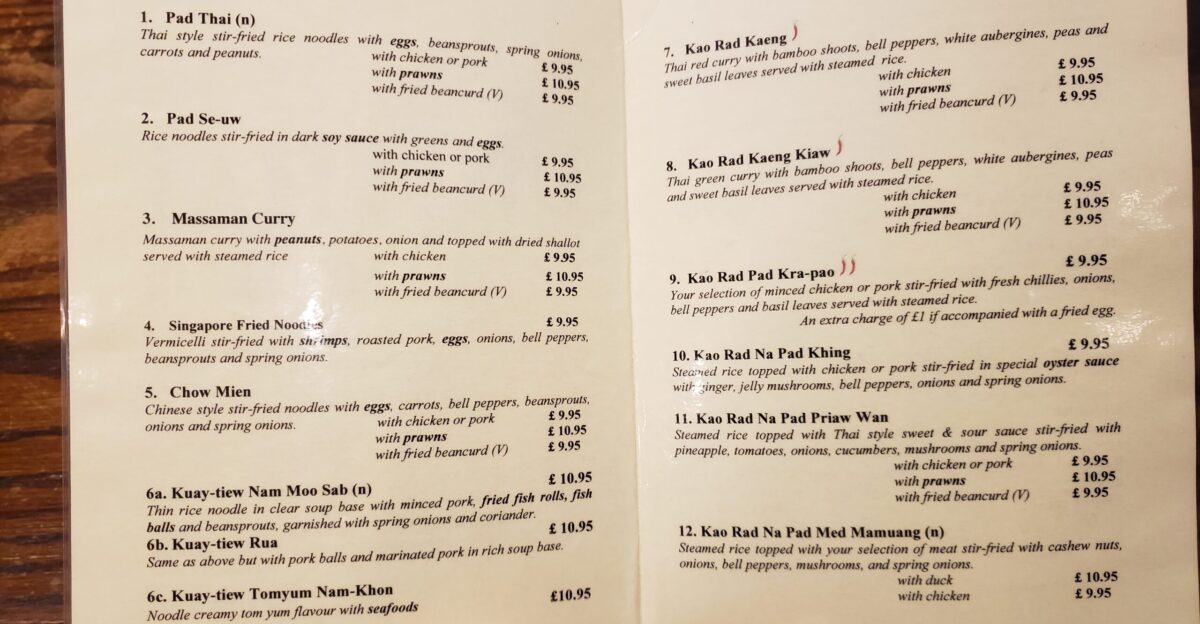
Confident diners never ask, “What’s good here?” They already know. When someone skips the menu completely, it doesn’t mean they’re arrogant; they’re just familiar.
High-net-worth diners like to go to the same places, building relationships with chefs who customize dishes. This behavior sends a message: comfort, routine, and belonging are more valuable than novelty or performance.
Ordering Without Looking
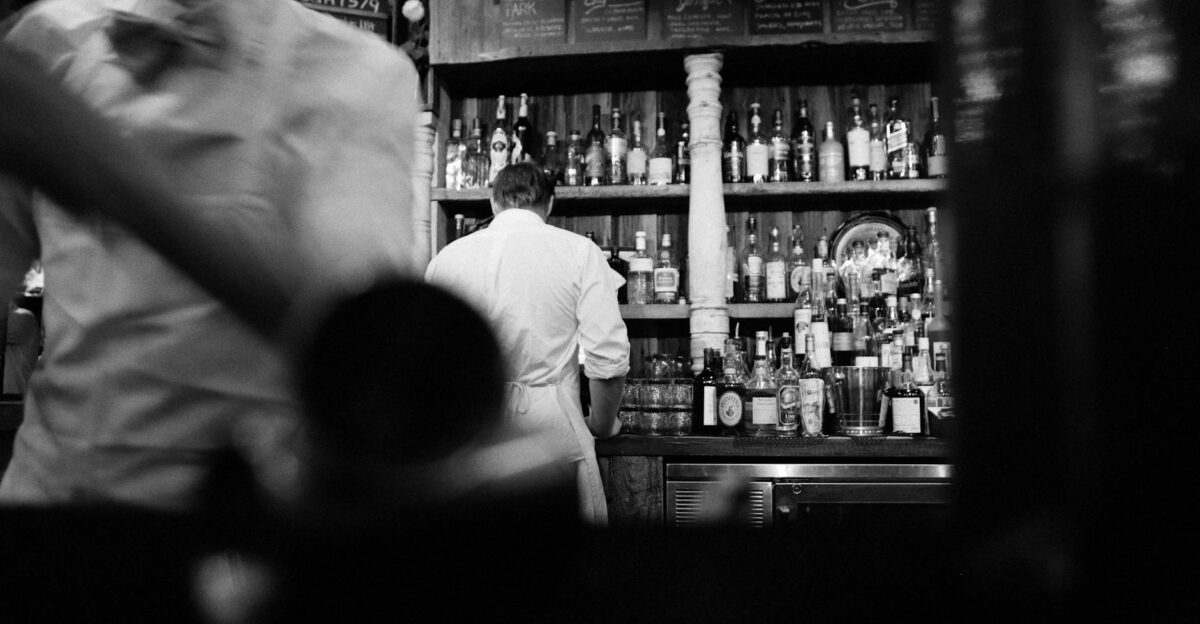
Wealthy people don’t perform knowledge; they live it. Ordering off-menu, personal variations, or trusting the chef shows a sense of control born from consistency and trust.
Meanwhile, if you scan the menu hesitantly, it signals unfamiliarity and comparison. True affluence is subtle: comfort replaces curiosity, authority replaces anxiety, and the menu becomes an optional background, not a test.
2. The Bill
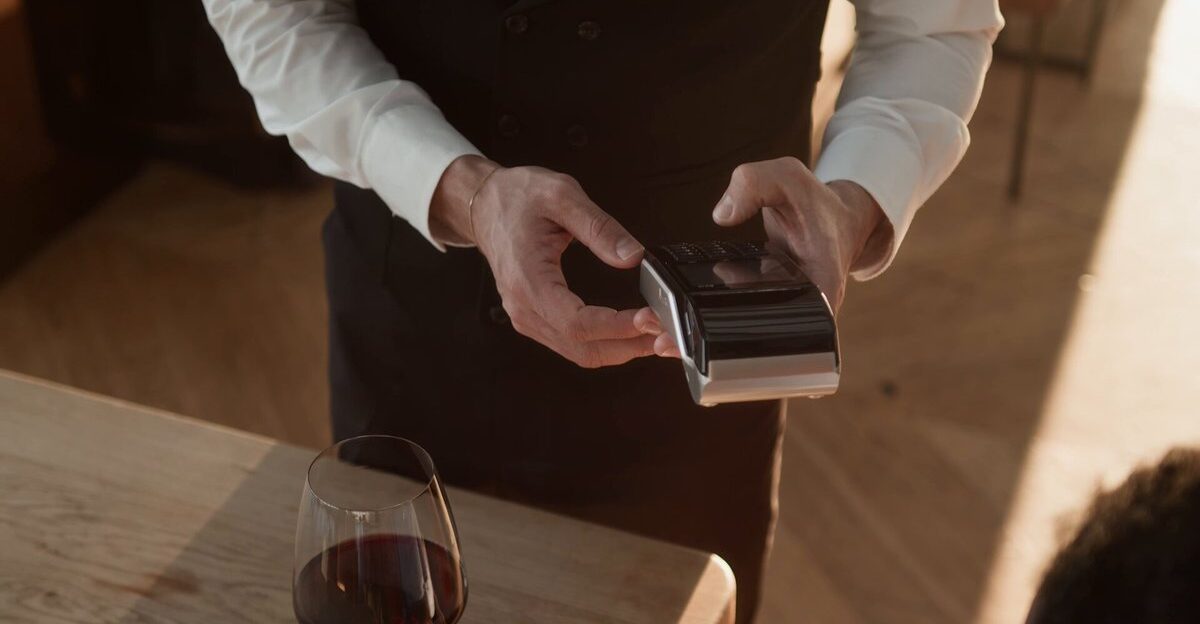
The arrival of the bill often changes the energy around the dinner table, except for one person. While others might tense up, wealthy diners stay relaxed. They know exactly how they’ll handle it.
This moment separates people who are comfortable with abundance from people who still think about price more than value or experience.
How They Handle the Bill

High-net-worth individuals treat payment as a formality. They might pay discreetly ahead of time or gesture calmly when the check comes. There’s no pause, no split-the-check negotiation, no scanning the subtotal.
That confidence doesn’t come from extravagance; it comes from familiarity. Ease reveals financial stability far more clearly than the amount on the receipt.
3. How You Speak
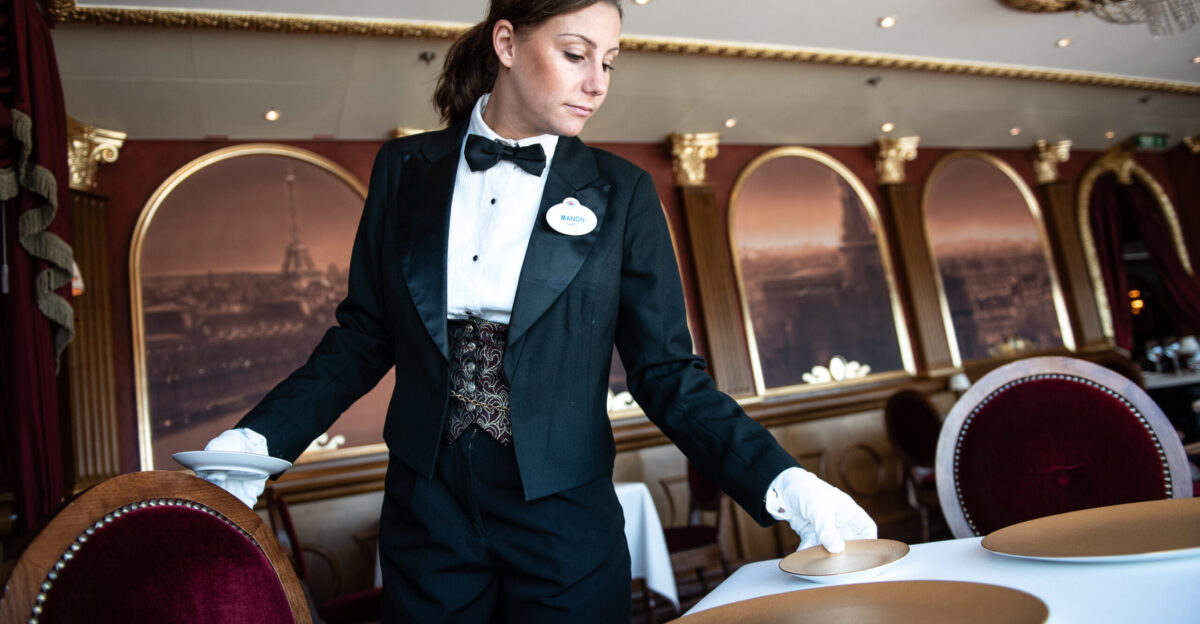
How a person speaks to service staff tells you almost everything about their background and confidence. Many mistake wealth for entitlement, but it’s actually the opposite.
Arrogance signals insecurity; composure signals status. The true giveaway happens in quiet moments, not performative politeness. It’s how calmly and gracefully someone interacts when no one else is watching.
Respect Toward Staff

Financially secure individuals understand hierarchy without abusing it. They address servers by name, maintain eye contact, and thank them with sincerity. They don’t grandstand or treat staff transactionally.
That quiet assurance comes from self-worth, not wealth itself. The nouveau riche demand attention; the truly rich extend respect, because power feels natural, not earned per meal.
4. Being Loud
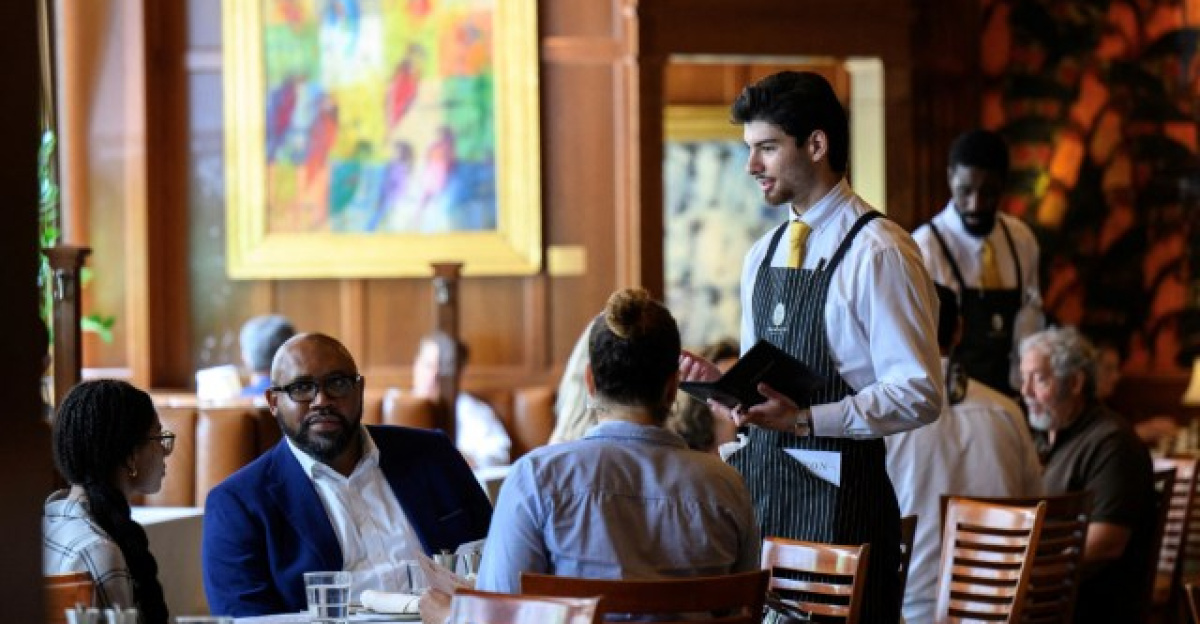
At group dinners, it’s rarely the loudest voice with the deepest pockets. Watch instead for who listens more than they speak.
While others might dominate conversation or boast success stories, truly affluent guests ask thoughtful questions. Their comfort isn’t measured by how much they’re heard, but by how much space they can comfortably give away.
Conversation Ratio

Money changes what silence means. The wealthy don’t compete for airtime; they’ve already proven themselves elsewhere. They engage more than they impress, choosing curiosity over dominance.
Genuine interest always overrides overcompensation. In conversation, modesty isn’t weakness; it’s fluency in social luxury. The richer the person is, the less they need to announce it.
5. Ordering Wine

Ordering wine exposes real levels of experience. Watch carefully; hesitation, avoidance, or overconfidence often signal discomfort. Some people lean heavily on the waiter for validation, while others overcomplicate to appear knowledgeable.
The most affluent diners navigate the process effortlessly: a quick scan, a nod to the vintage, or a simple “We’ll start with that bottle.”
Wine Confidence

True wealth prefers simplicity over spectacle. Confident diners know what they enjoy and skip performative vocabulary. They’re not trying to impress anyone; the act itself speaks volumes.
Their choices show grounded familiarity with quality, not the need for public approval. It’s less about price and more about palate. Calm enjoyment replacing fragile displays.
6. Rushing
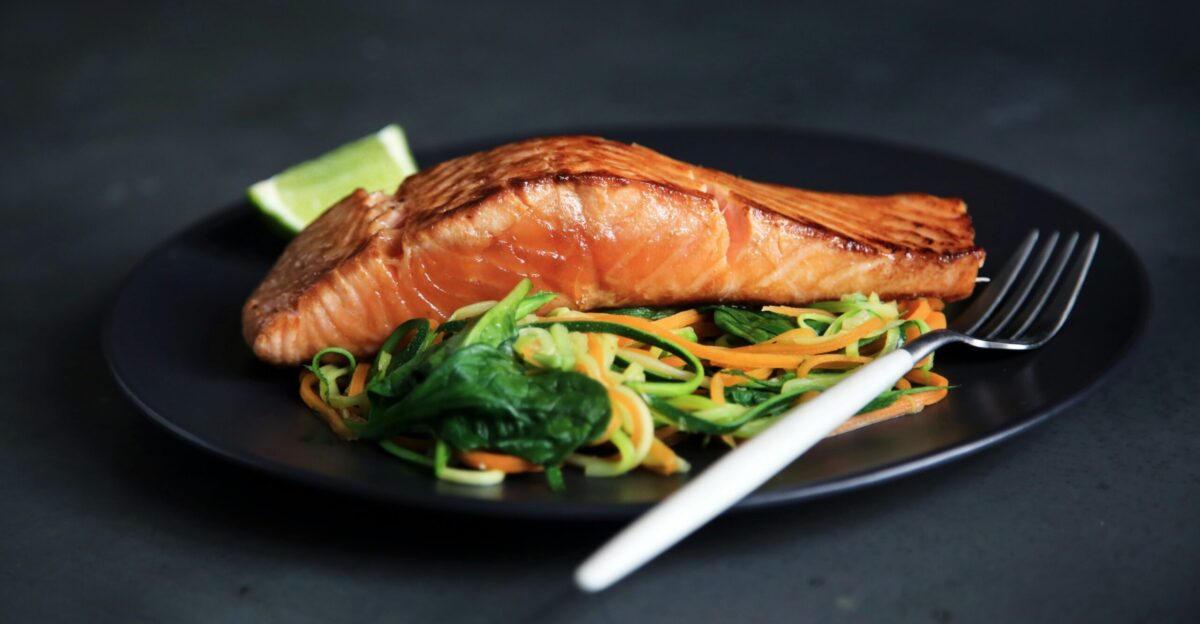
A rushed meal always reveals insecurity. People who are comfortable with money never treat time as scarce. They eat slowly, speak unhurriedly, and allow pauses to breathe.
There’s an invisible ease that comes from financial freedom, the kind that never watches the clock. The pace of the dinner becomes a demonstration of control, not delay.
Timing

For high-net-worth guests, dinner isn’t mere sustenance; it’s theater, networking, and reflection. Their rhythm reflects the abundance of time and presence.
They’re never impatient with courses or service pacing. Slowness signals confidence. Those who feel pressured rarely feel prosperous. Ultimately, people always reveal one truth: how much control they believe they have over time itself.
7. A Napkin
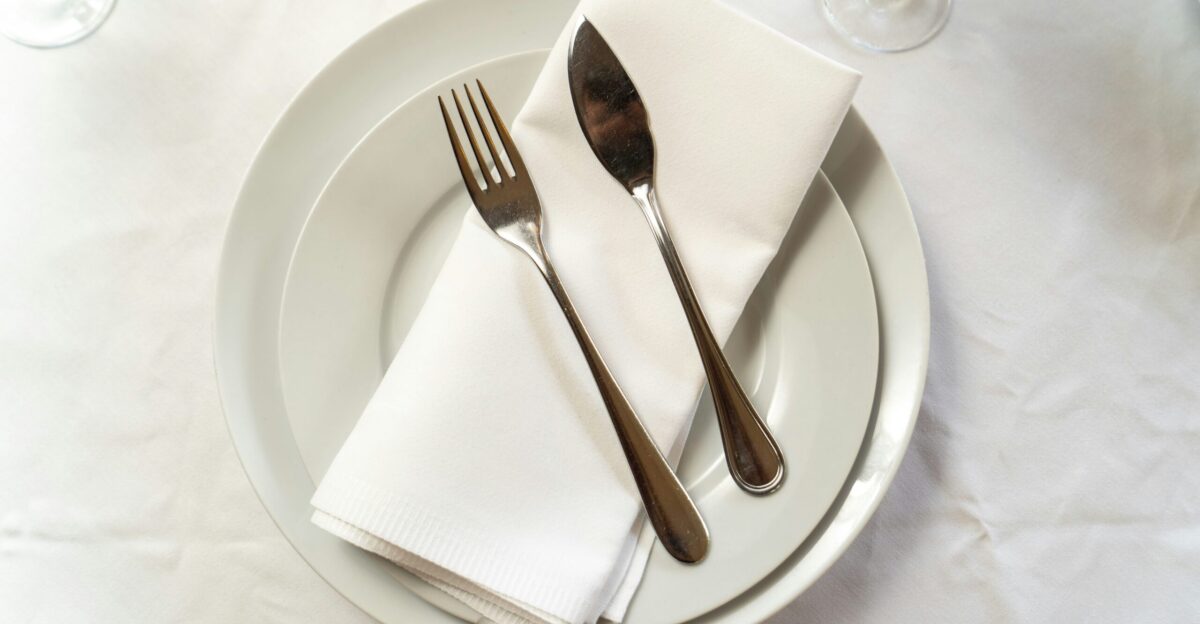
A napkin seems trivial until it doesn’t. Where and how someone places it before, during, and after a meal reveals more than etiquette. The wealthy treat dinner settings like it’s their second nature.
No fidgeting, no theatrical gestures. Their comfort with subtlety is what makes them stand out.
Table Manners

High-net-worth individuals learned manners long before they needed them. It’s muscle memory, not memorization. Every action, from holding cutlery to placing glassware, feels effortless.
That natural poise is one of the most telling cues of upbringing and exposure. You can’t study this for effect. Authentic ease always outshines rehearsed sophistication.
8. When Things Go Wrong

You learn more about someone when things go wrong than when they’re perfect. Maybe the food’s delayed, the order’s wrong, or the table isn’t ideal.
Some people react instantly with frustration, sarcasm, or aggression. Others remain calm and even friendly. Their demeanor reveals more about emotional wealth than any luxury accessory could ever communicate.
Crisis Composure

Calmness under pressure is the hallmark of confidence. Wealthy diners rarely escalate problems; they solve them gracefully or let them go entirely.
Losing patience signals scarcity; an inner lack of control. Emotional regulation is silent power. After all, money can buy comfort, but composure in discomfort? That’s the most expensive look of all.
9. Your Impression
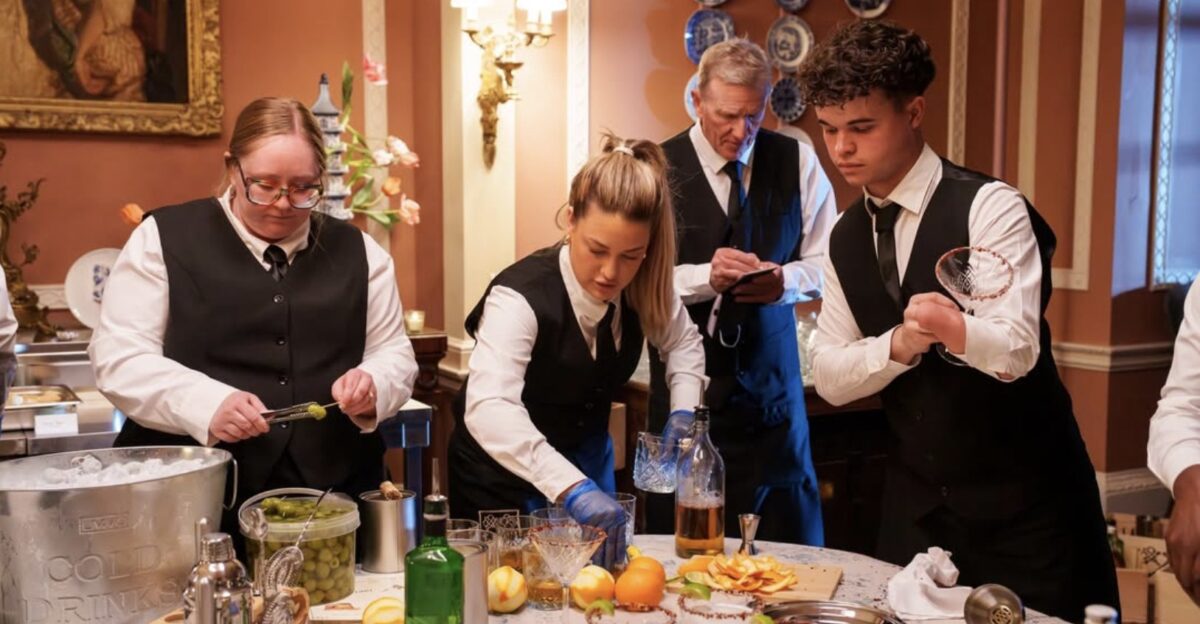
The evening may end, but the impression doesn’t. True character and true wealth show in the final five minutes. Some vanish after dessert, others linger for genuine gratitude.
How someone treats a restaurant after leaving tells you who they really are, because generosity without an audience is the rarest luxury of all.
Remembering Things
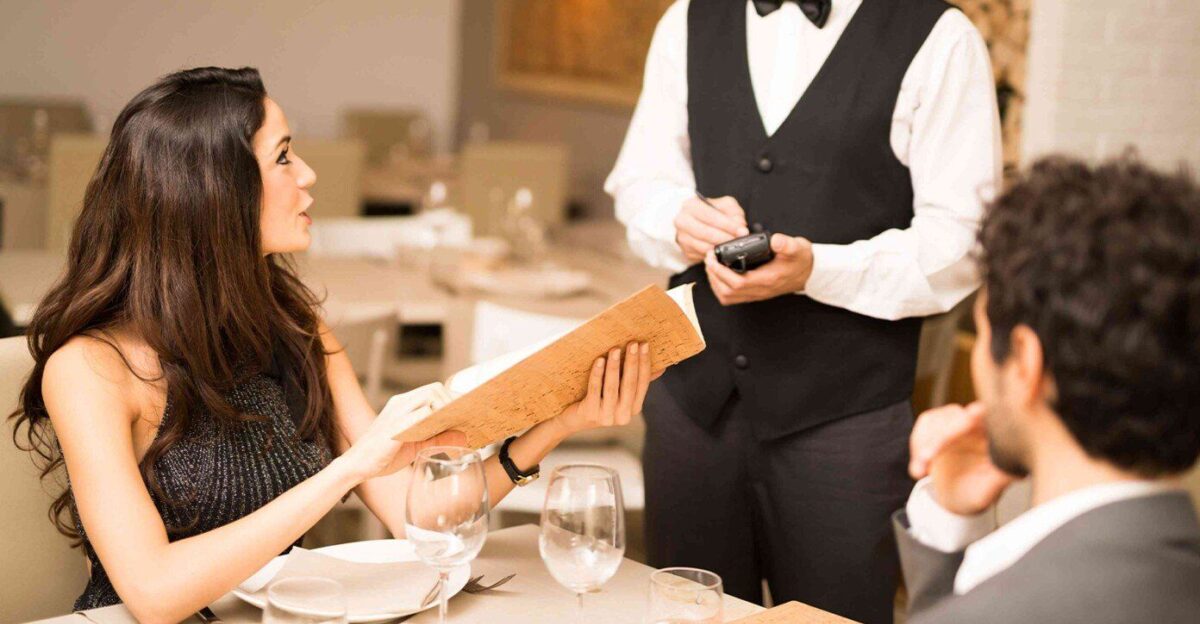
Wealthy diners remember names, leave generous tips, and thank staff discreetly. They don’t post it, announce it, or seek acknowledgment. They return quietly, creating trust that lasts longer than the check.
Because net worth isn’t just measured in money; it’s measured in grace, consistency, and how much kindness they can afford to give freely.